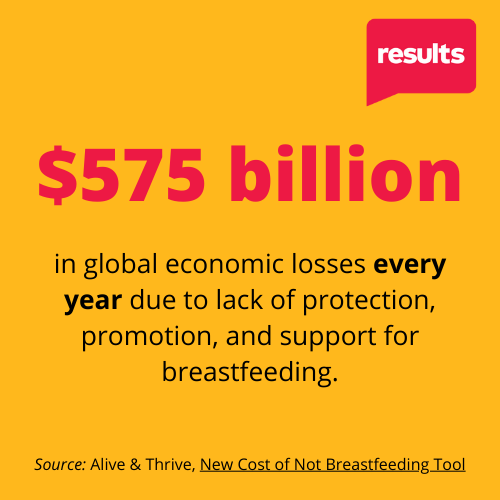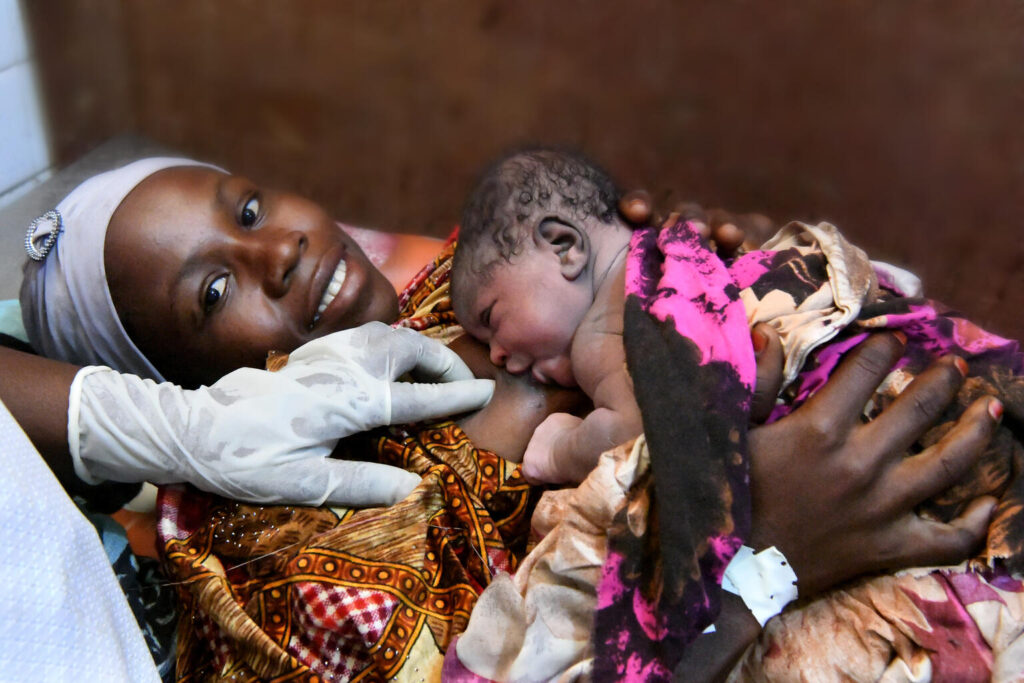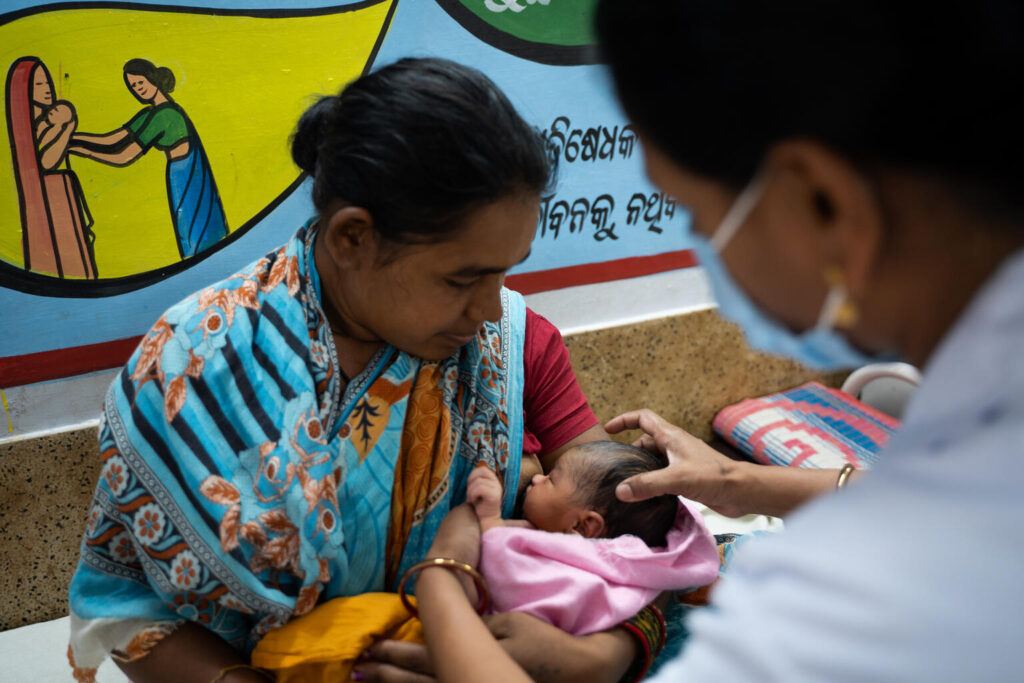575 billion more reasons to step up for breastfeeding
World Breastfeeding Week is observed every year from August 1-7. This year, the theme Step Up for Breastfeeding: Education and Support is focused on strengthening the capacity of people to protect, promote, and support breastfeeding. When possible for mom and baby, breastfeeding gives children the healthiest start to life. Newborns who are fed only breastmilk for the first six months are less likely to have diarrhea or infections and are more likely to survive than babies who are not. Yet only 44% of babies globally are exclusively breastfed according to the World Health Organization (WHO) –and this rate has been stagnant for 20 years.
For years we have educated policymakers on the benefits of breastfeeding, including better health outcomes for mom and baby. But a new tool developed by the Alive and Thrive Network and Nutrition International demonstrates the cost of not breastfeeding. According to their analysis, not breastfeeding leads to global economic losses of $1.5 billion per day. That’s $575 billion per year. This new data strengthens the moral and economic cases for supporting and scaling up breastfeeding services for families globally.

We know that breast milk is the perfect food for newborns. It provides all the energy, micronutrients, and antibodies they need to thrive. Early breastfeeding within the first hour of birth gives newborns the best chance to survive. This is partly due to the colostrum — or first milk– that contains antibodies from the mother to promote the newborn’s immune system. It also helps establish milk supply so caregivers can continue breastfeeding. The longer babies go without being breastfed, the more likely they are to die.

According to the UN convention on the rights of the child, all children (including newborns) have the right to good nutrition. Globally we are failing to deliver on that commitment. Undernutrition is associated with nearly half of child deaths, and hundreds of millions of infants and children are malnourished. Globally, improving breastfeeding practices and support could save over 400,000 children and nearly 100,000 mothers every year.
Many people want to breastfeed their babies, but don’t have the time, space, privacy, and support they need to do it. Others are exposed to aggressive formula milk marketing that compromises the nutrition of their children and violates international commitments. For some families, formula is the best or only choice to ensure their babies have good nutrition. But for many others, barriers–including lack of support, lack of family friendly work policies–prevent them from breastfeeding their babies.

© UNICEF/UN0643019/Jariwala
This year, in order to save lives and lay the foundation for prosperous and healthy societies, UNICEF and WHO are calling on governments, donors, and civil society to:
- Prioritize investing in breastfeeding support policies and programs
- Equip health and nutrition workers with the skills they need to provide quality counseling and practical support
- Protect caregivers and healthcare workers from the unethical marketing influence of the formula industry
As a leading funder of global health and development programs, the U.S. can have a huge impact for families and communities by stepping up for breastfeeding. For months RESULTS advocates have been lobbying their members of Congress to support the Global Malnutrition Prevention and Treatment Act. This bill would direct USAID to scale up targeted and evidence-based malnutrition programs, like those that support families to breastfeed.